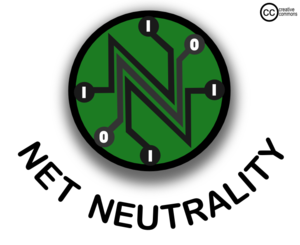Dear Loyal Readers,
I’m sorry if I haven’t been posting as much as I used to in the past. The rigors of daily life in the consulting world and attempting to step away from a screen for at least an hour a day have caused me to create a little less than I’d like. I will do my best to make it up to you in the coming weeks and months as we ramp back up towards another FCC battle over Net Neutrality.
Net Neutrality Debate Returns
 By now you have no doubt read that the new FCC Chairman Ajit Pai (or as I call him ISPai for the amount of catering to ISPs he does) has created a proposal that would undo much of what was accomplished in Open Internet Rules of 2015. (And for those of you that need a refresher – feel free to read the most complete backlog in at least the AV industry on the subject.) Before we go any farther, I want you to check your emotional status and take one long, deep breath. We’re going to be fine – well as fine as we have been based on the gaping holes of inadequacy that I found the last time we went through this.
By now you have no doubt read that the new FCC Chairman Ajit Pai (or as I call him ISPai for the amount of catering to ISPs he does) has created a proposal that would undo much of what was accomplished in Open Internet Rules of 2015. (And for those of you that need a refresher – feel free to read the most complete backlog in at least the AV industry on the subject.) Before we go any farther, I want you to check your emotional status and take one long, deep breath. We’re going to be fine – well as fine as we have been based on the gaping holes of inadequacy that I found the last time we went through this.
Chairman Pai’s attempt to roll back the 2015 rules is going to be a much greater battle than it would seem he realizes. In the 2015 rules, the FCC changed the classification of ISPs to a common carrier, effectively making them a public utility. This was specifically done for two reasons. Number one, the Courts struck down the previous attempt at Net Neutrality rules because at the time the ISPs were an information service and the kind of oversight that was being set up was deemed not applicable unless that status was changed. And number two, the change fit more in line with what the data networks have become to the people of the United States today – a utility for information.
After the initial 2015 rules were voted on and passed – even if there were some changes between the vote and the release of the rules – there were nine lawsuits brought about by ISPs and their representative groups and bodies that looked for any way to strike these down. The Courts ruled in favor of the FCC and the 2015 rules as written in every single case.
The onus, now, is on Chairmain Pai to prove that there is just cause to roll back this regulation when the public overwhelmingly supported it (or in my case, most of it), the FCC passed it (even it it was down party lines of a 3-2 vote – side note: we still only have 3 commissioners on the FCC today and there’s no sign of who will join them as the other two in this administration), and the Courts did not find fault with the rules. Pai has to demonstrate that there is cause to overturn the ruling of the Court which means that he has to demonstrate some egregious error on the part of the FCC or the Courts that allowed this through. The reason for that is that we now have precedent for these rules to exist. If the FCC were to attempt to roll back the rules, you can only imagine how many public advocacy groups would be bringing forth lawsuits.
Chairman Pai is going through the motions right now. His rules have been released for public viewing, there will be a public comment period, and then he’ll hold a vote that will result in a 2-1 party line decision. Once that’s complete and Pai has to defend his rules in court, we may find that this roll back is discovered to be unjust. It’s a guarantee that Pai will claim that the 2015 Open Internet Rules stifle investment – no evidence has established this yet. There were rollbacks in investment by the ISPs when the rules were up for debate and being written, but since then, zero evidence of severe reduced investment in deployment of the networks. Why would an ISP want to decrease their possible customer base?
Access to Information Goes Both Ways
However, there is still cause for worry. You see, recently members of Congress pushed through a bill establishing the rules over ISP’s access to your personal  information. It was the stance of many Republicans in Congress and the FCC that an ISP should have just as much right to your personal information – including your internet browsing history – as any edge service provider like Netflix or Facebook. Using the Congressional Review Act to look back on regulations passed in the last year, Congress struck down the privacy rules that were passed by the previous administration. (You can read the full story here.) The biggest issue with what made it through Congress was the fact that it made it so that the FCC was no longer allowed to create regulations over personal privacy. That responsibility would be solely that of the FTC – and that is where we run into our biggest problem with everything happening.
information. It was the stance of many Republicans in Congress and the FCC that an ISP should have just as much right to your personal information – including your internet browsing history – as any edge service provider like Netflix or Facebook. Using the Congressional Review Act to look back on regulations passed in the last year, Congress struck down the privacy rules that were passed by the previous administration. (You can read the full story here.) The biggest issue with what made it through Congress was the fact that it made it so that the FCC was no longer allowed to create regulations over personal privacy. That responsibility would be solely that of the FTC – and that is where we run into our biggest problem with everything happening.
There is a long and sordid history of battles between ISPs and the FTC – specifically wireless carriers and their “unlimited” data plans. After the 2015 Open Internet Rules were passed, there was a lawsuit in the 9th Circuit where AT&T sued the FTC under the precedent that the FTC didn’t have the authority to regulate what AT&T was doing because the Net Neutrality Rules had changed an ISP from an information service that could be regulated over by the FTC, to a common carriage service of communication by wire which is the responsibility of the FCC. AT&T won that case.
This means that, presently, the FTC, according to the Courts, does not have the authority to regulate the ISP’s handling of personal information of their customers. It also means that, according to Congress, the FCC isn’t allowed to regulate the ISP’s handling of personal information.
The only way to fix that regulatory loophole is to either repeal the bill passed by Congress using the Congressional Review Act, or for the FCC to use this as the foothold in their case against the previous Open Internet Rules saying that by keeping ISPs at common carrier status consumers are left exposed and no one can protect their personal information.
This is where the real danger lies in the current status of the Net Neutrality world. The battle is no longer about equal access to all information on the internet, it’s going to be about the fact that the Republican commissioners on the FCC worked with members of Congress to create a regulatory gap in order to weaken the rules.
Thank you for your patience lately, readers. I’ll do my best to keep you up to speed as timely as I can.
If you want to speak out about this, don’t be afraid to call your congressional representatives and be sure to comment when you’re able to the FCC.



